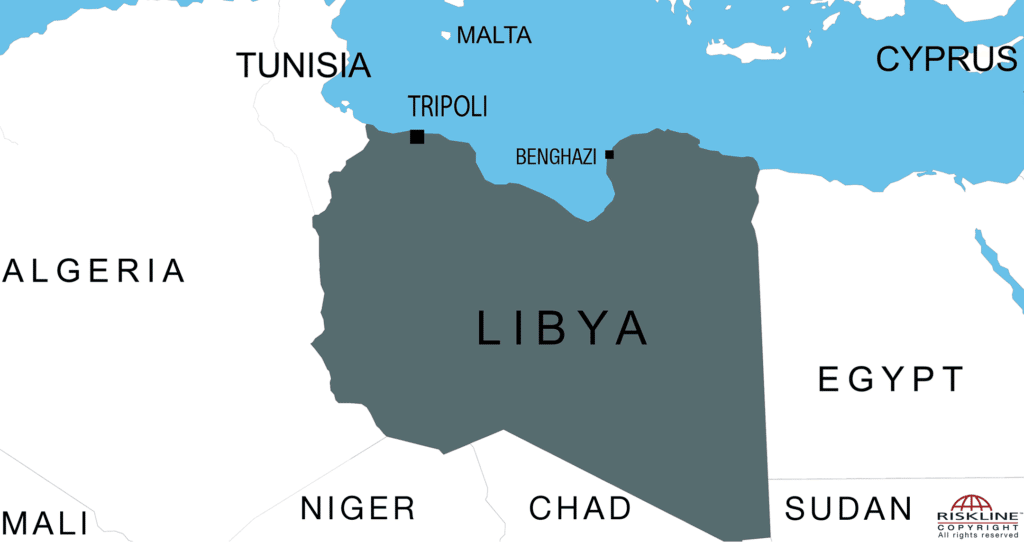Since the fall of Gaddafi in 2011, Libya’s route to democracy has been uncertain to say the least. Political tensions between rival governments and ongoing conflict between militias has devastated the country and rendered any United Nations (UN) peace plans worthless. Despite failed negotiations, Libyan politicians, the UN and other external actors are determined to hold parliamentary and presidential elections in 2018. While elections may be seen as a quick-fix solution to the complexities of the Libyan situation, they are likely to involve a long and drawn-out process which becomes the catalyst for more violence in the run up to and in the aftermath of any elections.
Repeated efforts by the UN Support Mission in Libya (UNSMIL) to bring about the cessation of conflict have largely failed. Since his appointment as Special Representative and Head of UNSMIL, Ghassan Salamé has reiterated the need to hold elections in order to stabilise the country and bring about a peaceful end to the current situation. On 20 September 2017, Salamé presented the new Action Plan for Libya in a bid to restart the transition. The principles of the plan aimed to amend the Libyan Political Agreement (LPA) to restructure the current government, to convene an inclusive National Conference to establish consensus principles between the divided groups, to finalise and approve a new constitution and to hold elections based on a new electoral law.
However, difficulties in implementation have forced the UN to move directly to the final part of the plan, holding elections. The essential requirement for this is the approval of a new constitutional framework by a popular vote in a national referendum. A draft constitution has been approved by the Constitutional Drafting Assembly but still faces potential challenges from the supreme court, voter turnout and the difficulties of holding a national referendum. The High National Election Commission (HNEC) also needs to clarify the legal framework for participation of parties and how elections will be monitored. Technical security challenges also remain if elections do take place as external forces are unlikely to be able to control the situation on the ground or guarantee free and fair elections. The recent drive for registration is currently the only bonus as over 2.4 million people (53.26 percent of the population) registered to vote, although they may be waiting a while before they are able to cast their ballots.
The deep division between the Tobruk-based House of Representatives (HoR), elected in 2014 and backed by General Khalifa Haftar and his self-styled Libyan National Army (LNA), and the Tripoli-based UN-backed Government of National Accord (GNA), created in 2016 and headed by Ahmed al-Serraj, continues to disrupt peace efforts, although both sides have declared their desire to carry out elections. However, it is the militias which are likely to pose more of a problem. Thought to number at least 1,500, the various militias operating across Libya are the ones who maintain order and the rival governments exert little influence over them. This, compounded with external support for different factions and the presence of terrorist groups such as Islamic State and Al-Qaeda, adds a further dimension to the conflict. The large number of stakeholders in the current situation has rendered change difficult, and the call for elections has neglected to address the current divisions fuelling instability and conflict.
Islamic State (IS) claimed responsibility for the suicide attack on the headquarters of the High National Election Commission in Tripoli on 2 May 2018, which resulted in the death of at least 14 people. The Islamist group has called on its followers to carry out attacks targeting polling stations across the Middle East and the Libyan faction preemptively targeted the heart of the electoral process. Also, forces loyal to General Haftar attacked and destroyed polling stations in Benghazi, Umm al-Rizam and Qubbah in December 2017. On top of this, armed groups have kidnapped, arrested, tortured and killed thousands of people with immunity as the two rival governments competed for legitimacy. Political assassinations have become common and elections serve as another area for militias to settle political disputes through violence. Recent incidents include the assassination of Salah al-Qatrani, an education official, in January 2018 shortly after he announced his candidacy for parliamentary elections and the kidnapping and assassination of Mohamed Eshtewi, mayor of Misrata, in December 2017.
More threatening perhaps is the potential for violence following elections if they actually take place. Currently there are no mechanisms for the arbitration of disputes if parties do not like results, with violence being the main outlet for solving problems. The results of the 2014 parliamentary elections, when the Islamist-orientated General National Congress (GNC) refused to step down for the newly elected HoR, deepened the political divisions and triggered the descent into the current conflict. There is nothing to suggest that elections in 2018 will bring about a different outcome than that witnessed in 2014. If anything, the current fragmentation of the political scene is worse heading into this year’s planned elections. General Haftar himself has affirmed his openness to carry out elections but threatened to take action and seize the country if the results do not bring about a solution to the current conflict. Finally, any newly elected government will still rely on the influence of various militias, who are unlikely to sacrifice their financial and material gains for a political solution and will continue to destabilise the country.
Holding elections without the necessary security and legal frameworks in the current environment of instability, fragmentation and insecurity has the potential to trigger more violence and prolong any sort of peaceful transition. Terrorist groups are likely to target election infrastructure and voters in the run up to dissuade them from participating in the electoral process, and the number of political kidnappings and assassinations is likely to increase as warring factions use violence to solve political disputes. In the long-term, if elections take place there is no central authority to make parties accept the result and no guarantees that those who lose will not resort to more violence to make their voices heard.















